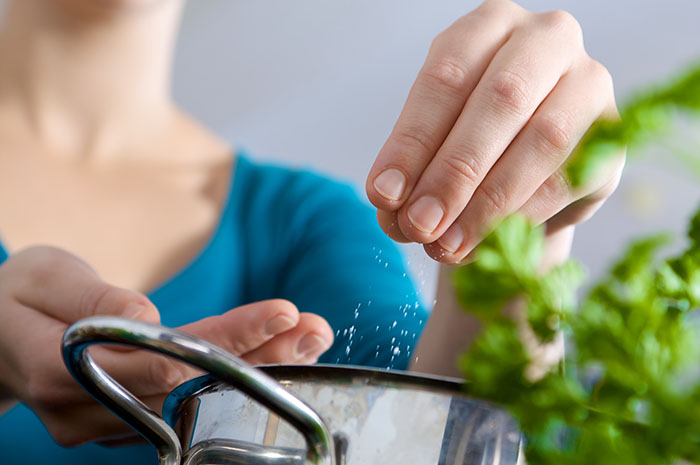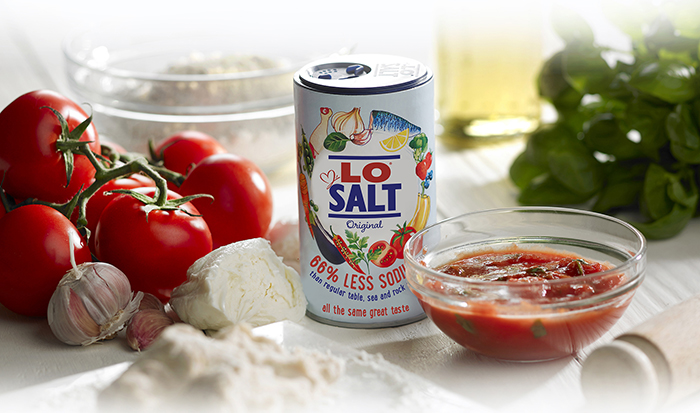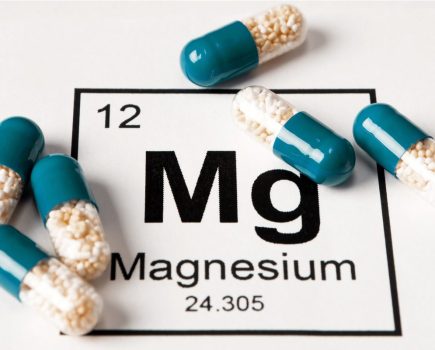Sponsored post by LoSalt
This week it’s Know Your Numbers week, where you can get your blood pressure checked for free. We look at salt and the link to blood pressure, with advice from Dr Sarah Jarvis.
Do you know your blood pressure? Find out this week at one of the many free testing events at pharmacies, workplaces shopping centres, supermarkets and health clubs as part of Know your Numbers Week (September 18-24).

If your blood pressure is high, i.e. above 160 over 100, there are steps can you do to reduce it. Research* by LoSalt shows that 41 per cent of people do not know high blood pressure is linked to salt consumption and that 86 per cent of people don’t know how much salt they should be having a day.
One teaspoon of salt equals 6g of sodium, which is the maximum recommended daily intake. However, 8g is the average consumption.
Dr Sarah Jarvis says high blood pressure is a major risk factor for stroke and heart disease, which are still two of the biggest killers in the UK. Here are her tips on how to cut salt in your diet:

- Avoid seasoning and adding salt to food at home. Try using herbs, spices and lemon juice instead.
- If you can’t go without salt, you’re better using a reduced-sodium one such as LoSalt instead (£1.75, losalt.com), which contains 66 per cent less sodium than regular salts. It is the sodium in salt that is linked to high blood pressure.
- Gourmet sea and rock salts aren’t necessarily better for you just because they contain minerals. They all contain exactly the same amount of sodium as regular table salt – any other trace minerals will be present in such small quantities that you won’t get much benefit.
- Cut down on processed foods, as this is where you get the majority of salt. Ready meals, ready-made sauces and soups are often high in salt.
- Keep processed meats to a minimum. Bacon, ham and sausages contain salt
- Remember, high blood pressure is very common and it often has no symptoms. It usually affects people as they get older and will be checked as part of your NHS health check, which you are invited to every five years between the ages of 40 and 74. It’s important to attend these health checks as they can help detect early signs for high blood pressure, stroke, kidney disease, heart disease, type 2 diabetes and dementia.
Why should I be aware of how much salt is in my diet?
Public Health England says excess dietary salt is one of the most important modifiable risk factors for high blood pressure. High blood pressure affects one in four adults and is a major risk factor for stroke and heart disease. It often has no symptoms, so you may not even know you have it.
How is salt linked to high blood pressure?
All salt, whether its table, rock, sea or pink Himalayan is 100 per cent sodium chloride, and it is sodium that is linked to high blood pressure. When you eat salt, or food containing it, the sodium makes your body retain water and that is a big factor in increasing blood pressure.
I don’t add much salt to food – how am I eating too much?
You may think a teaspoon of salt sounds like a lot and that you don’t use that much in your cooking or seasoning. However, up to 75 per cent of the salt in your diet is probably coming from processed foods such as bread, cereals, bacon, ham, sausages, pickles, sauces, condiments and ready meals. It’s important to be mindful of the salt you add to food, which is the easiest way to modify and keep an eye on it, but to also think about the type of food you are eating that can contain hidden salt.

About LoSalt
LoSalt is a reduced-sodium salt that delivers all the flavour of regular salt but contains 66 per cent less sodium than regular table, rock and sea salts. It is an expert blend of two natural mineral salts: potassium chloride (66.6% min.) and sodium chloride (33.3% max.).
LoSalt contains significantly less of the sodium than regular salts, so is an easy swap to bring down you sodium intake. It can be used exactly as you would use regular salt and in like-for-like quantities, in cooking, seasoning, baking and even for curing meat and fish.
LoSalt is made in Scotland and is available from a wide range of supermarkets and stores: Asda, Sainsbury’s, Co-Op, Waitrose, Budgens, Booths, Londis, Costcutter, Premier and Spar for £1.75. Visit www.losalt.com.
Know your Numbers Week runs from September 18-24
*Omnibus research among 2,000 UK adults conducted online 24-27 February 2017 on behalf of LoSalt by Mortar.
** https://www.gov.uk/government/news/new-phe-data-on-salt-consumption-levels







